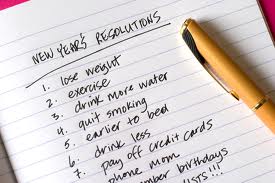
From all of us at Kidproof Lower Mainland, here’s wishing everyone a HAPPY VALENTINE’S DAY!

From all of us at Kidproof Lower Mainland, here’s wishing everyone a HAPPY VALENTINE’S DAY!
Even the most sweet-natured dog can be provoked into biting or attacking. Here are some important things to remember when you see a dog.
Dogs are more likely to bite when:
Always remember “W. A. G. S.:”
Here are a few more tips to remember:
SOURCES
1) http://safekidssafedogs.com/
2) http://www.dogsafety.govt.nz/dogsafety.nsf/wpg_url/kids-dog-safety-tips-for-kids-index!opendocument
3) http://www.parenting.com/article/kids-and-dogs-safety-tips
 Ah yes…the dreaded New Years Resolution. How many of you still make them? I know lots of people who have stopped making them because they just end up failing.
Ah yes…the dreaded New Years Resolution. How many of you still make them? I know lots of people who have stopped making them because they just end up failing.Well don’t fret. While you can’t wave a magic wand and make your resolution come true, there are some easy steps to take that will make it easier to fulfill your promise to yourself.
On average only about 20% of us keep our New Year’s resolutions. But don’t let the statistics get you down. By following the tips above you’ll be better equipped to fall into the successful 20% category.
Source: menshealth.about.com

From all of us at Kidproof Lower Mainland, here’s wishing everyone a SAFE and HAPPY NEW YEAR 2013!

From all of us at Kidproof Lower Mainland, here’s wishing you a Merry Christmas and all the best in this holiday season!
Boxing Day is the day after Christmas and gives people the chance to take part in the post-Christmas sales or watch ice hockey games. Some shoppers start their Boxing Day waiting outside stores in the wee hours of the morning and stores open earlier than usual to accommodate eager shoppers.
Crowds are greater at this time and children may easily become separated from their parents. Parents need a plan and children should know what to do in case they are separated. For smaller children, the plan should be to remain in the area where they become separated and wait for their parent to come to them. For older children, the plan could be having a pre-designated spot to meet and having the parents cell phone number on speed dial. Prior to a busy day like Boxing Day, practicing the plan is a good idea so that everyone will know what to do if something does happen.
Tips for Children:
Tips for Parents:
Remember these tips so that you can have a safe and enjoyable shopping experience!
Christmas is just around the corner and EVERYBODY is now busy with their shopping. Are you still picking up last minute gifts? Do you have your grocery list ready with your baking and Christmas dinner needs? Before you start shopping, please do be careful if you are using a Shopping Cart. Do you know that many kids end up in the hospital each year after they had fallen — or even jumped — from shopping carts? According to the National Safe Kids Campaign, children 5 years old and younger are especially at risk.
Kids have a hard time sitting still. Shopping carts can tip over easily because they are unstable due to their narrow wheel base. Kids can fall out of, get trapped in, get run over by, and get struck by shopping carts.
The best way to keep children safe in a shopping cart is for them to sit still in the shopping cart as much as possible (no horsing around). Just wiggling out of the harness or seat belt can quickly unbalance an already unstable load. Please take note of these safety tips:
Always keep these in mind and happy shopping!
We’re sure you all know this, but when we get busy, frustrated, tired and stressed (we know we all do) we tend to forget these things as parents. Keep these as reminders, sometimes we all need a reminder!
Today is the start of Hanukkah, an eight-day Jewish holiday also known as the Festival of Lights. This holiday commemorates the re-dedication of the Holy Temple in Jerusalem over 2,200 years ago. Hanukkah is observed starting on the 25th day of “Kislev” according to the Jewish calendar, which corresponds to late November to late December in the Gregorian calendar that we use.
The main part of Hanukkah is the lighting of the Menorah, which is a special nine-branched candelabra. On each night of the holiday, one additional light on the Menorah is lit, until eight of the lights are lit by the final night. Other traditions include the eating of cheese, jelly donuts and foods cooked in oil, the Dreidel, a special spinning top that children play with on Hanukkah, and the giving of coins (known as gelt).
On behalf of Kidproof Lower Mainland, best wishes to all our friends who celebrate Hanukkah!

With the arrival of colder weather, most parents main concern is making sure their children are dressed appropriately for the rain, wind and snow of a Lower Mainland winter. However, there are few other safety considerations parents should consider when the weather turns cold. Here are a few tips for parents to remember:
Most children enjoy playing out in the winter weather, so keep these tips in mind so you can keep your children safe while having fun!